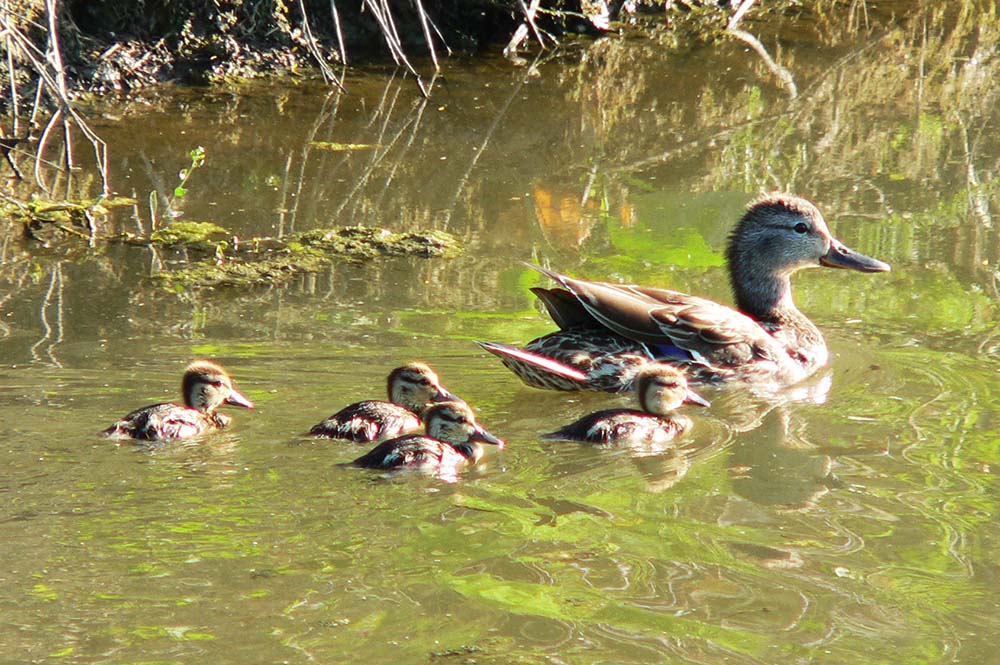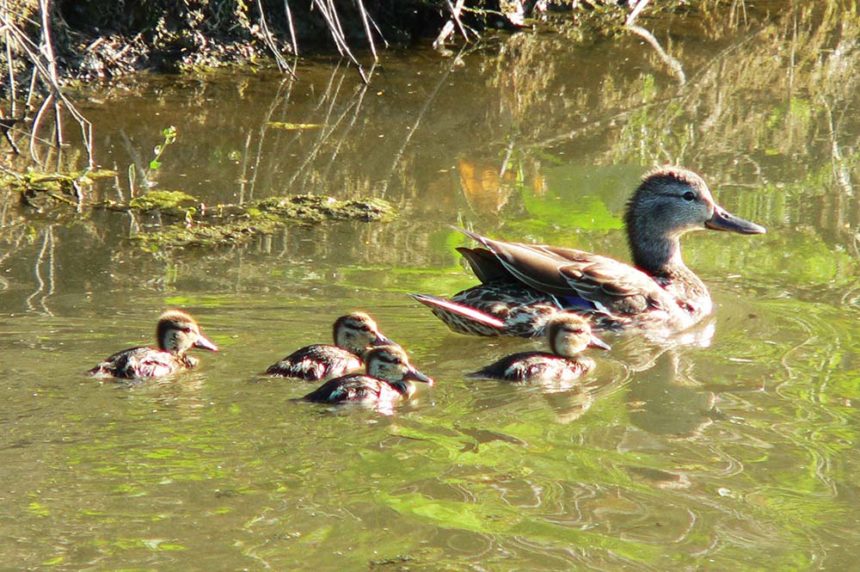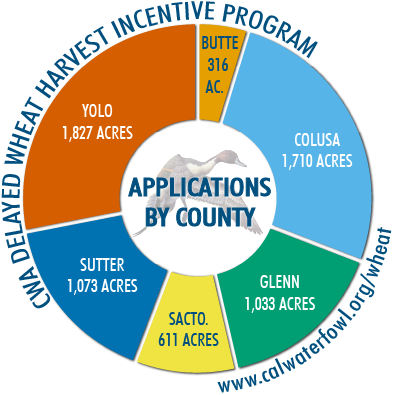
Mar 30, 2020
Farmers flock to new program that saves wild ducklings
 Farmers and donors have responded overwhelmingly to California Waterfowl’s new initiative to help wild ducks that nest in farm fields: the Delayed Wheat Harvest Incentive Program.
Farmers and donors have responded overwhelmingly to California Waterfowl’s new initiative to help wild ducks that nest in farm fields: the Delayed Wheat Harvest Incentive Program.
Waterfowl Programs Supervisor Caroline Brady hoped to enroll 1,000 acres of wheat and triticale in the pilot program, which provides incentives to farmers who agree to delay wheat harvest until July 1-15 – long enough to let most duck nests hatch.
California Waterfowl supporters rose to the challenge, donating enough to enroll 1,500 acres in the program.
And then farmers stepped up even more, applying to enroll more than 6,500 acres.
“We shouldn’t be surprised – we’ve found farmers to be some of our best partners. They want to help wildlife where they can,” Brady said. “But we are definitely happy about the volume of interest!”
Brady will spend the coming weeks surveying applicants’ fields for suitability. The wheat fields most likely to attract ducks are those located near a water source that can safely conceal – and feed – ducklings after they hatch. This can include brood ponds in managed wetlands, but flooded rice provides excellent brood water (and is much more abundant), and even irrigation canals will do.
 While the application period for farmers has closed, CWA is still accepting donations to the program and will enroll as many acres as funding allows.
While the application period for farmers has closed, CWA is still accepting donations to the program and will enroll as many acres as funding allows.
The incentive payments – $30 to $40 per acre – will help mitigate the costs of delaying harvest, which include deteriorating crop quality and fire risk.
While not every acre of wheat will be enrolled in the program, Brady will talk with the remaining farmers about working with CWA’s Egg Salvage Program, which works with partners to rescue nests prior to harvest or field work. Eggs are taken to licensed facilities for incubation, and ducklings are reared with minimal human contact and released into the wild when they’re about 5 weeks old, which is when their mothers would send them off on their own.
Together, Delayed Wheat Harvest and Egg Salvage have the potential to mitigate a substantial amount of wildlife-agriculture conflict in the Sacramento Valley, where the mallard breeding population is in steep decline. While California has lost an estimated 95% of its historic wetlands, programs like these make our landscape a better place for waterfowl.
“This program is a bright spot during these strange and dark times," said California Waterfowl Chief Operating Officer Jake Messerli. "We’re so thankful for how quickly everyone came together to support this important work. Our members, donors and the farming community are rallying behind this new program and it’s exciting. Let’s produce some ducks!”
CWA is also grateful for the support of organizations like the California Wheat Commission, California Rice Commission, Central Valley Joint Venture, Audubon California and the Natural Resources Conservation Service. These partnerships make possible more than any one group can accomplish on its own.


